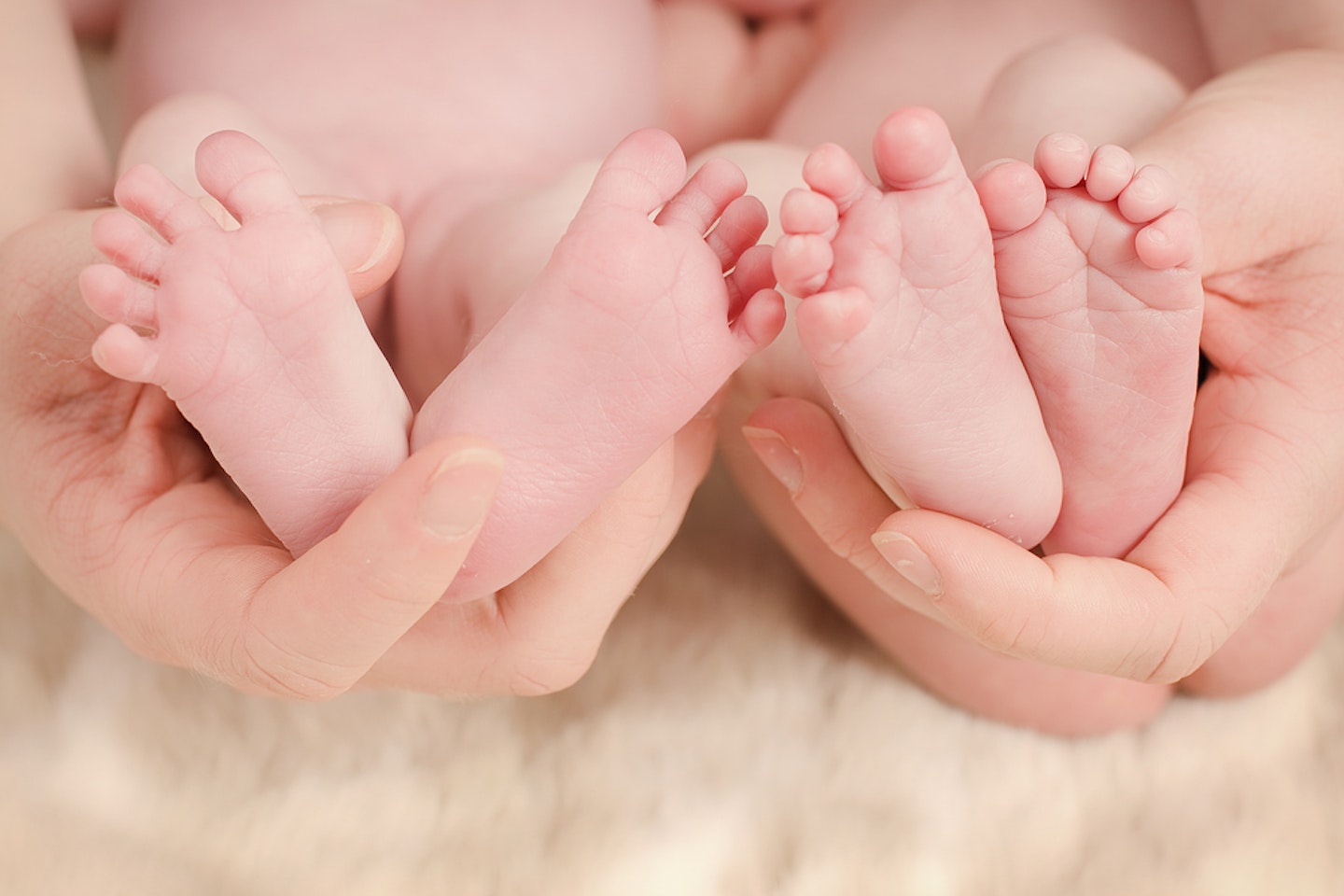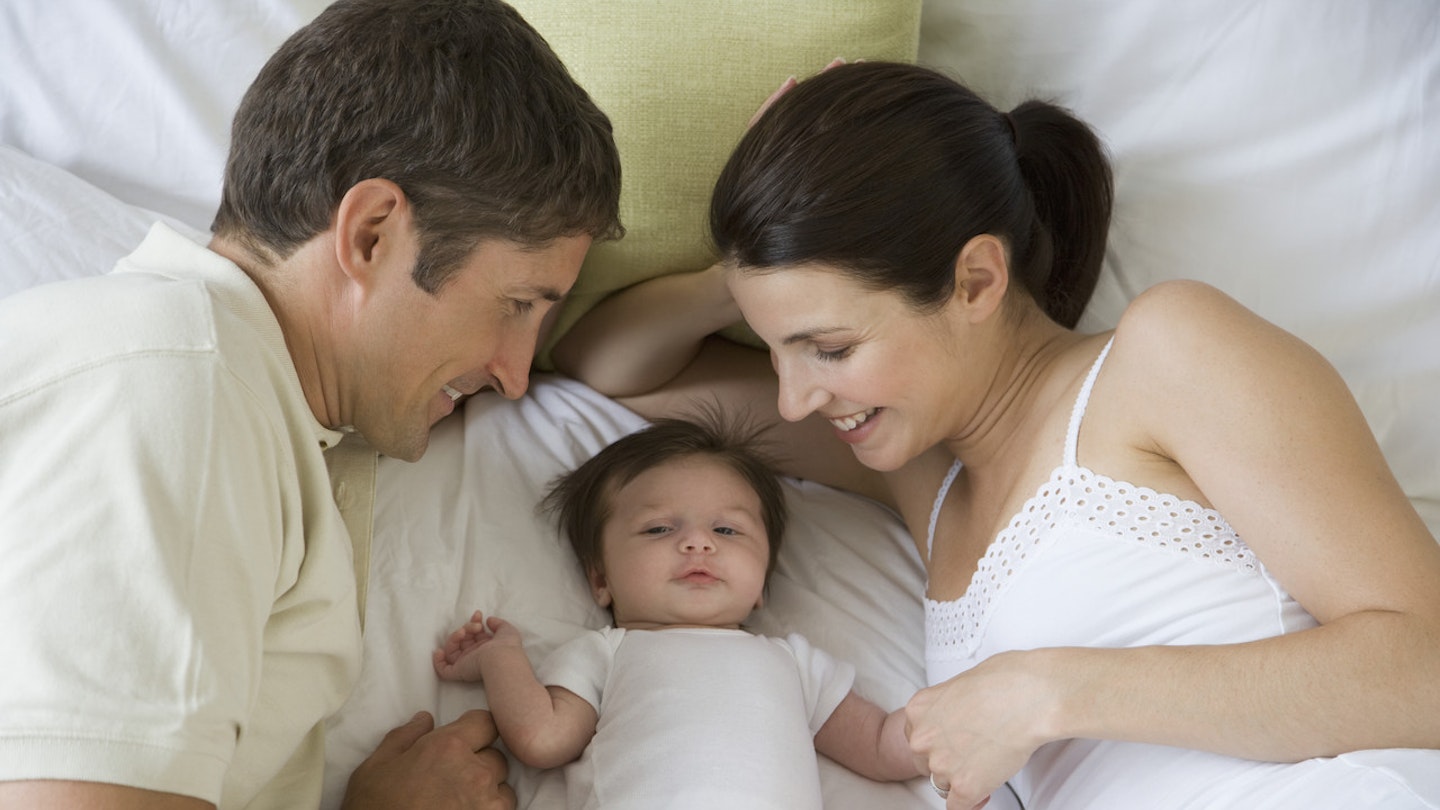Another baby? Errr, not yet! But even though your newborn is still tiny, it’s worth thinking about post-birth sex and fertility.
In the first few months after having a baby, your life may be a fog of sleepless nights and endless piles of unwashed babygros, and sex may be pretty low down on your to-do list (if it’s on there at all).
But there are certain situations where you can get pregnant. And if you don’t want to face the prospect of two children under one – trust us, it can happen – make sure you’re clued up on post-birth fertility and contraception.

When can you have sex after giving birth?
Traditionally, women are advised to wait until their six-week check before having sex. ‘Usually, by this time, post-birth bleeding and discharge has almost settled and bruising and stitches have healed,’ says GP Dr Sarah Brewer, author of Planning A Baby?: How to Prepare for a Healthy Pregnancy and Give Your Baby the Best Possible Start. ‘In reality, most women tentatively try as soon as they feel ready, so contraception needs to be high on your list of priorities.’
How soon can you get pregnant again?
Research shows that women who are not breastfeeding can ovulate as early as 28 days after delivery. However, if you are breastfeeding, getting pregnant will be harder for the first 6 months. This is because ‘hormone changes triggered by breastfeeding help to suppress ovulation,’ says Sarah. So when it comes to adding another member to your family, the first six to nine months after delivery will likely be the peak time for another pregnancy.
If you wish to wait a while though, it is suggested you find the appropriate contraception for you and not rely on breastfeeding as a contraception - whilst some may use breastfeeding as a formal contraceptive, it is not a fool proof solution! Month six to nine is prime time for accidental pregnancy, so you need to decide well in advance what type of contraception you want to use after your baby is born.
What other contraceptives are there for new mums?
Condoms are a popular choice for new parents. ‘However, if you’ve been suffering from post-birth vaginal drynessand decide to use a lubricant, make sure you only use a water-based lubricant as petroleum jelly and mineral oils such as baby oil weaken latex rubber and may even dissolve it,’ says Sarah.
If you are breastfeeding, you can still use the mini-pill after having a baby. ‘The mini-pill contains just one hormone, a synthetic progestogen, which does enter breast milk in small amounts, but this is not thought to be harmful,’ says Sarah. The progestogen-only pill can be started three weeks after childbirth – there is an increased risk of breakthrough bleeding if it is started earlier. And it shouldn’t affect breastfeeding if it’s already well-established.
If you’re not breastfeeding, you can use the combined oral contraceptive pill, which contains two hormones – a synthetic progestogen and oestrogen. ‘This works in a similar way to the progestogen-only pill but is more effective as it also blocks ovulation,’ says Sarah. You will need to wait until three weeks after delivery before starting the combined Pill, as there is an increased risk of blood clots (eg DVT) if it is taken too soon.
If you think you won’t want to have another baby for at least three years, or if your family is complete, you may choose to opt for a longer-term method of contraception such as an intrauterine device (coil), implants or depot injections.
If you’re looking to add to your family, find out ways to help boost your fertility.
Make sure you're following Mother & Baby on Instagram for relatable memes, inspiring stories and parenting hacks!
Have approx 60 seconds to spare? Why not join thousands of mums-to-be and start your very own Amazon baby wish list! They're absolutely free to create and perfect to send to the friends, aunties and your mum to make sure you're getting the baby products you really need... Click here!
For parenting tips, tricks and advice you can trust, click here to download a free digital issue of Mother and Baby magazine.
